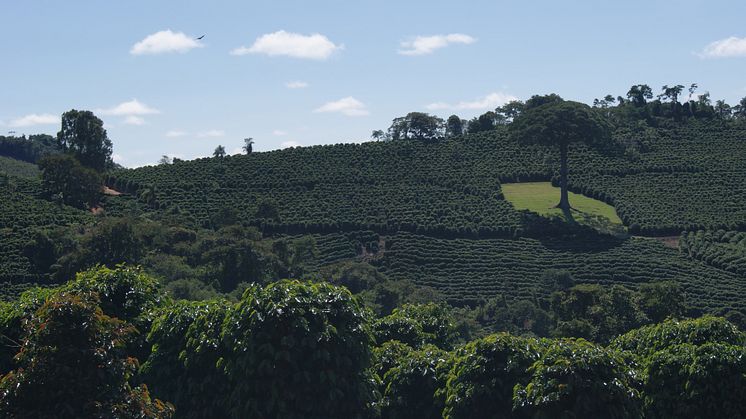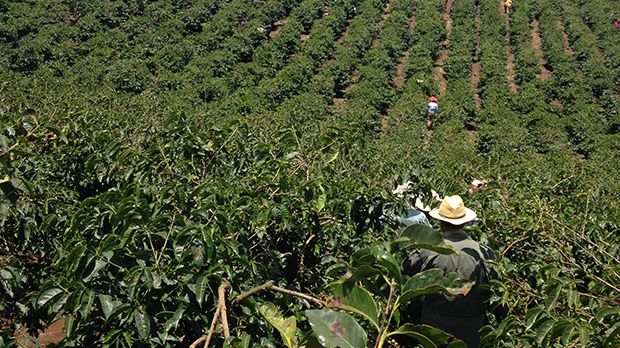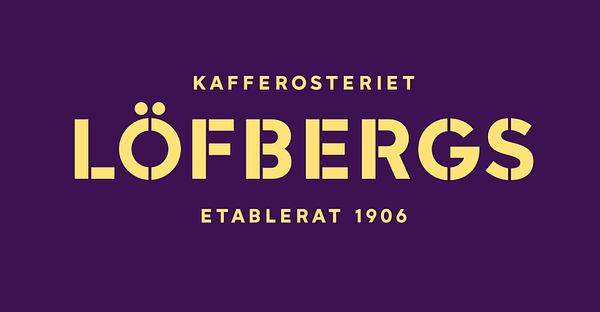
Blog post -
Dry, but hopeful in Brazil
At the beginning of the year, it rains a lot in Brazil. Usually. This year, the country is experiencing its severest drought in a very long time. It has left its marks, especially among Brazilian coffee farmers. But despite the drought and water rationing, our purchaser Martin meets hopeful coffee farmers on his journey in the Brazilian state Minas Gerais.
***
Even before my trip, I am informed that the drought in Brazil is the worst in decades. This in a period when it is supposed to rain to make sure the coffee cherries ripe in the best possible way. Of course, it is affecting the coffee plantations, where speculations about this year's harvest as well as next year's have forced up the world market price. The results of the drought often come crawling, but you cannot see the total effect before the harvest is brought in. We were now supposed to form our own opinion about the situation.
I meet my colleague Tony, who comes straight from a visit to Colombia, in the seaport Santos. We get to meet several different exporters before we participate in the 20th Edition of The Santos International Coffee Seminar in Guarujá together with hundred delegates from 14 countries.
After the seminar, we travel together to the southern parts of Minas Gerais before we break up to be able to visit as many coffee plantations as possible. In total, we manage to see more than 60 plantations, both big and small, which geographically cover about 50 per cent of the production in the area. Our visual impressions as well as our conversations with the farmers give us a fairly good and complete picture of the situation.
Even if it is too early to without doubt say anything about this year's harvest, most things point towards the situation being slightly better than the worst fears. Sporadic areas and mostly young trees on lower altitudes have been affected the most. A tree that looks okay with a lot of cherries may have beans that have not developed at all. The drought can also be seen in the tops of older trees, but that is not unusual even when it rains as normal. That the expected record harvest has decreased is clear. Many involved in this matter expect this year's harvest of Arabica beans to decrease with 10 to 20 per cent - which is a lot considering the great volumes. Next year's harvest may also be affected.
One positive thing with high world market prices is that they make it possible for the coffee farmers to invest in improving their harvest. In combination with increased knowledge and more resistant plantations as more farms are certified, this will reduce the decline and make the future look promising in many places as the need consistently increases around the world. This is evident when I meet the coffee farmer Marcello, who is adapting his farm according to the criteria of Rainforest Alliance.
"We should not be focusing on what is bad, but on the positive, how much we can produce and sell", he says. Despite my relatively short visit, I notice that his optimism is contagious. It is fantastic.
I also have time to visit some speciality coffee farms, where the cherries are growing ripe at full speed. The plantations are located on high altitude and have not been affected that bad by the drought. Here, they focus on new farming methods and experimental future projects. I can see a clear trend that more and more are experimenting with the dry method, also called the natural method, when extracting the coffee bean from the cherries. The cherries are cleaned from leaves and twigs directly after the harvest. They are then spread out on huge surfaces, like African beds/tables or on cemented terraces, to dry in the sun. The dry method gives the coffee a special quality and has in the last years been successful in the quality competition Cup of Excellence.
On our trips, we often taste thousands of cups, but there is a certain coffee here that really stays on my mind. It has an interesting acidity with notes of tropical fruits and nutty tones, which is surrounded by a pleasant sweetness. I instantly get a bunch of ideas how we can use it.
Martin Löfberg


